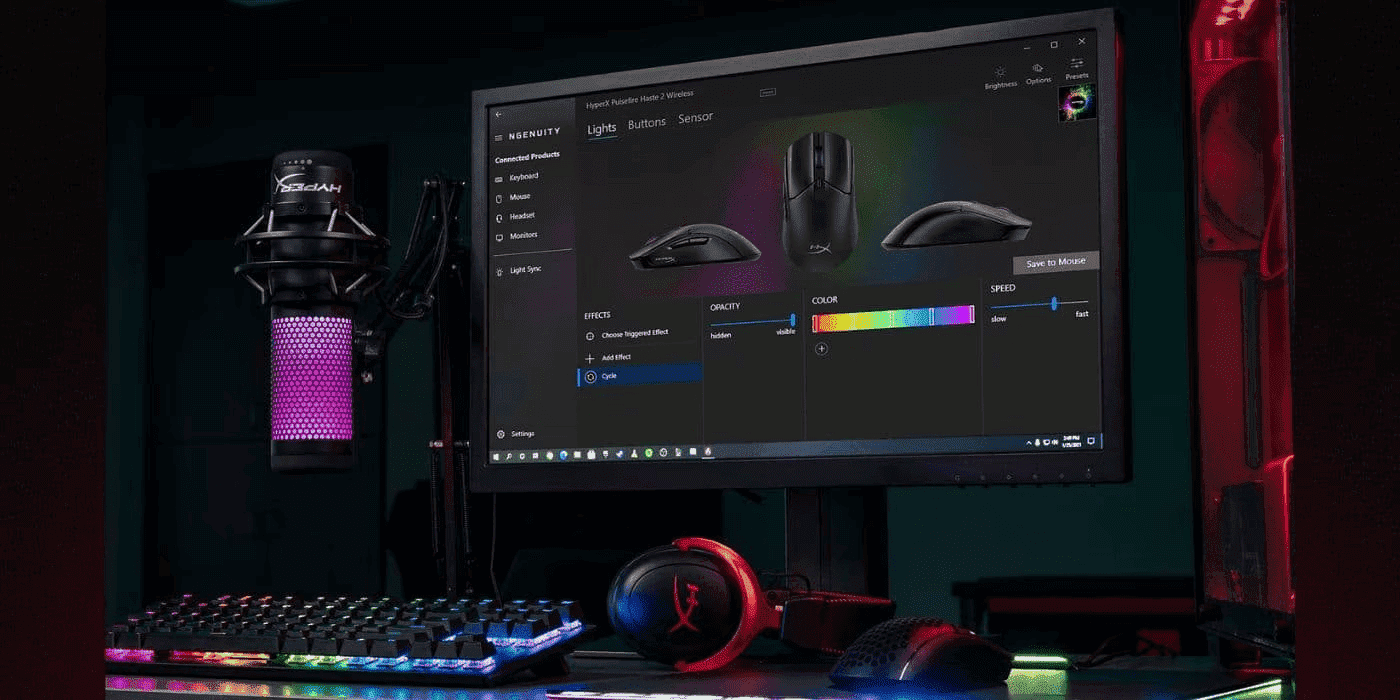Thank you for visiting the MALAYSIA HP Store
-
Contact Us
CONTACT USCall us
- Sales
- 1800 88 4889
- Technical support
- 1800 88 4889
Mon-Fri 8:30AM to 5:30PM
(exc. Public Holidays)
Chat with us- Our specialist are here to help
- Live Product Demo
- Sales
- 60166999350(WhatsApp)
-

Mon-Fri 8.30am - 5.30pm
(exc. Public Holidays)
Live product demo
Store finder Locate our storesSubmit feedback We value your opinion! - Location
- My Account
The AI Revolution of 2025: DeepSeek Challenges ChatGPT’s Dominance


Could this be the end of ChatGPT's reign as the leading AI language platform? The AI conversational landscape has seen significant developments with the arrival of DeepSeek, an AI platform from China that has entered the race to challenge ChatGPT and redefine the rules of the game.
Shortly after its public launch and rapid adoption, DeepSeek made waves in the international market, reportedly affecting the stock prices of major companies including chip manufacturer Nvidia, which saw significant market value fluctuations.
In this article, we explore DeepSeek's origins and how this Chinese AI language model is impacting the market, while analyzing its advantages and disadvantages compared to ChatGPT. Are we close to witnessing a technological war? Who will win this battle? Keep reading to draw your own conclusions.
The Rise of a Challenger
DeepSeek is an AI language model that emerged in 2023 as an open-model project, with its philosophy centered on free access to artificial intelligence, unlike ChatGPT, which was developed by OpenAI with a more commercial approach.
DeepSeek has generated significant interest for several reasons. One notable factor is that its training took just two months and cost approximately $6 million, whereas ChatGPT's development is estimated to have required between $500 million and several million more.
Another striking feature of DeepSeek is its open-source nature, an aspect we'll explore in detail later.
DeepSeek's progress has been advancing rapidly, marked by significant milestones:
-
Initial launch with capabilities comparable to commercial models like ChatGPT
-
Implementation of innovative language processing architectures such as the MoE (Mixture of Experts) structure, Multi-head Latent Attention (MLA), and Multi-token Prediction (MTP)
-
Development of specific tools for different industrial sectors
-
Continuous integration of community-driven improvements thanks to its open architecture philosophy
DeepSeek is rapidly gaining popularity due to its transparency and accessibility, reflecting the need for inclusive and collaborative AI solutions.
Technical Capabilities and Performance
DeepSeek has emerged as a formidable competitor to ChatGPT by introducing an innovative perspective in the field of AI language models. This open-access software alternative particularly excels in technical and mathematical areas, while ChatGPT maintains its position with proven versatility and an intuitive interface.
Here are the fundamental differences:
Architecture and Performance:
DeepSeek uses a Mixture of Experts (MoE) approach with 671 billion parameters, selectively activating only the most relevant ones for each task. In contrast, ChatGPT employs a traditional transformer model that processes all tasks uniformly. This architectural difference allows DeepSeek to achieve 90% accuracy in mathematical tasks, significantly outperforming its competitors.
Accessibility and Costs:
DeepSeek: Free and open-source, allowing community modifications.
ChatGPT: Freemium model with premium features under subscription.
Main Strengths:
DeepSeek:
-
Excellent performance in technical and mathematical tasks
-
Faster structured responses
-
High customization for technical users
-
Resource efficiency
-
Superior cost-effectiveness
ChatGPT:
-
Better contextual understanding
-
More user-friendly interface
-
More nuanced responses
-
Strong privacy compliance
-
Superior multimodal capabilities
Ideal Use Cases:
DeepSeek is the perfect choice for:
-
Developers and technical users
-
Projects requiring mathematical precision
-
Teams with limited budgets
-
Advanced customization needs
ChatGPT excels in:
-
Business environments
-
General content creation
-
Non-technical users
-
Projects requiring high privacy
The choice between both platforms will mainly depend on the specific needs of the user: DeepSeek excels in technical performance and cost-effectiveness, while ChatGPT offers a more polished and versatile experience. Both tools continue to evolve, improving their capabilities and defining the future of human-AI interaction.
| Feature | DeepSeek | ChatGPT |
|---|---|---|
| Architecture | Mixture of Experts (MoE) with 671B parameters | Traditional transformer model |
| Technical Performance | ✓ 90% accuracy in mathematics ✓ Consistent in general tasks |
Variable performance by task |
| Price | Free | Freemium model with subscription |
| Speed | ✓ Faster in technical queries | Consistent speed |
| Ease of Use | Requires technical expertise | ✓ Intuitive, user-friendly interface |
| Customization | ✓ Highly customizable | Limited by OpenAI policies |
| Privacy | Stricter moderation | ✓ Robust compliance standards |
| Ideal Use Cases |
|
|
| Key Strengths |
|
|
Market Impact


DeepSeek has made a significant impact on the technology industry by demonstrating its ability to develop AI models at lower costs than established competitors like OpenAI and Google. Notably, the company achieved this breakthrough despite US restrictions on advanced chip exports, efficiently optimizing the use of available GPUs.
This achievement represents a direct challenge to Nvidia's market dominance, as it demonstrates that high performance can be achieved with less sophisticated hardware. This could motivate other developers to optimize lower-cost hardware, potentially affecting Nvidia's revenue.
Despite these promising advances, questions arise about the competitive sustainability of DeepSeek's cost-effective model, considering that US tech giants continue to invest billions in AI infrastructure and build massive computing clusters, which could widen the resource availability gap.
Open Source Revolution
One of DeepSeek's striking features is its shared code system philosophy, where anyone can access, modify, and improve its technology. This encourages global collaboration where developers can adapt the model to specific needs or even enhance its capabilities.
This differs from ChatGPT's proprietary model which, although offering an API (Application Programming Interface), keeps its base code inaccessible to the public and restricts users from modifying it or understanding its internal workings.
-
Benefits for developers: programmers can experiment without restrictions, which has led to the creation of innovative tools and customized solutions.
-
Democratization of AI: small businesses and non-profit organizations can now leverage advanced technologies without incurring prohibitive costs.
-
Use cases: from medical applications to educational solutions, DeepSeek is expected to be used in projects across different fields that were previously unthinkable with proprietary models.
Looking Ahead
DeepSeek has arrived to change the rules of the game in AI evolution, demonstrating that it's possible to develop advanced models efficiently and economically through open source. Its success challenges the hegemony of major US tech companies and offers a more democratic and accessible platform.
In the coming years, we're likely to see two paths in the AI market: on one side, large companies like OpenAI and Google will continue developing highly sophisticated proprietary systems, focused on enterprise clients and specialized applications. On the other side, a robust ecosystem of collaborative development solutions inspired by the DeepSeek model will emerge, democratizing AI access for developers, small businesses, and emerging markets.
This philosophical duel will likely drive greater innovation in both sectors, potentially benefiting both corporate users and the development community, while optimizing computational resources and reducing implementation costs.
Frequently Asked Questions
The DeepSeek's open-source nature makes it particularly suitable for developers working on localization projects. Its customizable architecture allows for better integration of different languages and cultural contexts. However, if you need established multilingual capabilities out of the box, ChatGPT currently offers more refined multilingual support.
DeepSeek generally requires less computational power due to its efficient MoE architecture, making it more accessible for businesses with standard computing infrastructure like the HP ProOne 440 G9 60.5 cm (23.8) All-in-One Desktop PC. ChatGPT, being cloud-based, doesn't require local processing power but may have higher subscription costs for business use.
Yes, DeepSeek's open-source nature allows for extensive integration possibilities with existing business software. Its API can be customized for specific business needs, though this requires technical expertise. ChatGPT offers more straightforward integration through standardized APIs but with less flexibility for customization.
ChatGPT has established privacy protocols and complies with international data protection standards. DeepSeek, being open-source, allows organizations to implement their own privacy measures and potentially host the model locally. For businesses handling sensitive data, it's important to review both platforms' privacy policies and consider consulting with IT security experts.
DeepSeek's free, open-source model makes it particularly attractive for startups and small businesses operating with limited budgets. While it may require more technical expertise to implement, the long-term cost savings can be significant. ChatGPT's freemium model offers an easier starting point but can become costly as usage scales up, especially for business applications requiring the premium features.
- Sales
- 1800 88 4889
- Technical support
- 1800 88 4889
Mon-Fri 8:30AM to 5:30PM
(exc. Public Holidays)
- Our specialist are here to help
- Live Product Demo
- Sales
- 60166999350(WhatsApp)
-

Mon-Fri 8.30am - 5.30pm
(exc. Public Holidays)
Live product demo








